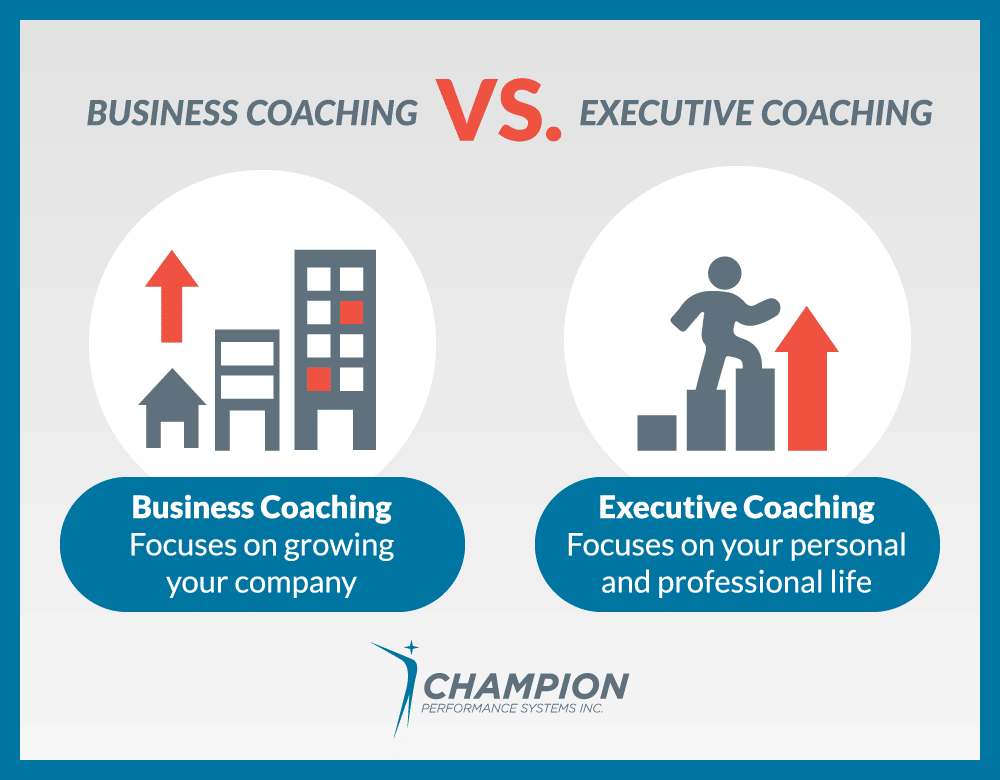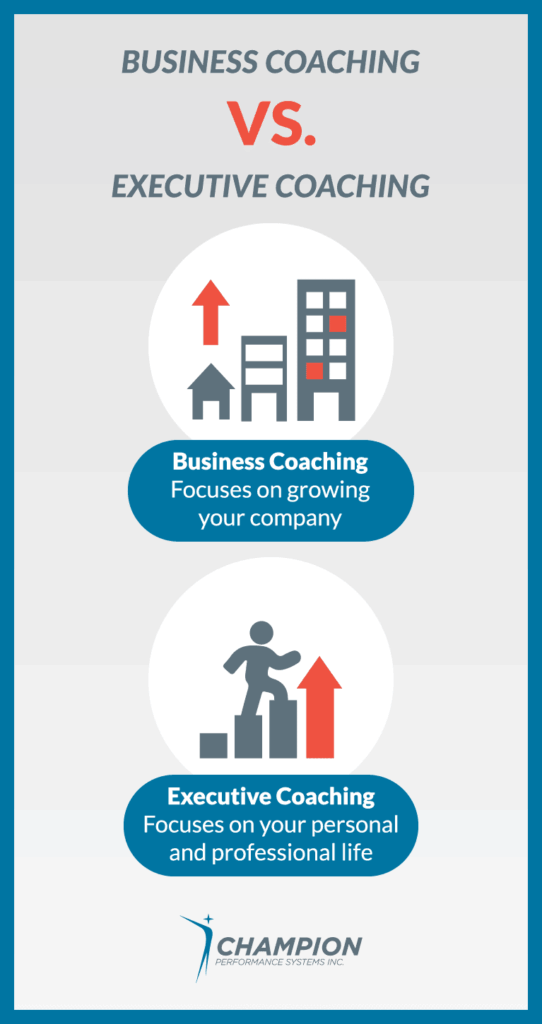Business coaching vs. executive coaching is an important distinction to make. There are several business coaching options available nowadays, with professionals offering perspectives across an array of fields.
Business coaches and executive coaches, though, are the two most common. You might think they’re the same thing, but — despite some similarities — they’re not. So which one’s the right choice for you? Let’s take a closer look at the differences between the two, giving you a better idea of what each one has to offer.
Why Hire a Coach in the First Place?
Before we dive into the differences between business coaching vs. executive coaching, let’s take a look at some of the reasons why you might consider hiring a coach in the first place.
They Can Help You Set Goals and Keep You Accountable
Goals are essential for any business — new or established. A coach can help you identify your goals and make sure they meet the needs of your company.
Not only can they help you visualize what you want to achieve, but, they can provide the support you need and talk you through challenges. In other words, they’ll hold you accountable so you can meet — and even exceed — your goals.
They Can Help You Explore Issues That May Be Holding You Back
A coach won’t tell you what to do to succeed. Instead, they’ll help you explore the issues that may be holding you back. They can share what they’ve seen in similar situations. In essence, those experiences can help guide you on your journey.
You can take the information and see how you might apply it to your particular situation. Sometimes, a little outside perspective can go a long way in helping you realize what you need to do to keep moving forward.
They’re Your Confidential Sounding Board
As a professional, you might not feel comfortable sharing the problems you’re facing with others. You might feel like you should have everything under control or that no one will understand. The best coaches can act as a confidential sounding board. They’ll actively listen when you speak.
Then, after hearing what you’ve said, they’ll paraphrase to ensure clarity, ask good questions to dive a little deeper, and then offer a broader perspective. This helps you get out of your head and view your situation differently.
Business Coaching vs. Executive Coaching: The Differences


While both business coaching and executive coaching aim to help you and your business thrive and grow, there are differences between these two coaching types. To help you decide which might work best for you, here’s a closer look at each one.
Business Coaching
Business coaching focuses on growing your company. It looks at how leadership extends from you as the business leader to your executive team, management, and company employees — you can’t grow your business alone, after all.
A business coach typically attends business meetings you hold with your team. During individual sessions with you, the business coach will offer leadership insight and guidance based on what they’ve gleaned.
One of the main goals of a business coach is to help you learn how to better lead your team. This involves developing an understanding of the essential components of growth, like company culture, strategy, finances, and business processes.
More broadly, working with a business coach may — and often does — include specific, customized training programs and hosting leadership team facilitation workshops that, for example, engage different management and employee teams across the company. Essentially, your coach is a partner that helps you and your company grow by solving business-related problems.
Executive Coaching
Unlike business coaching, executive coaching centers around the professional development of an individual. It focuses more on your personal and professional life, touching upon aspects such as health, family, purpose, leadership skills, future goals, and your overall growth as a professional.
An executive coach can help you identify what’s hindering your progress so that you can refocus, improving your effectiveness as a leader. In other words, executive coaching gives you the perspective you need to achieve the personal and professional results you want.
The goal is to help you develop your leadership skills, which then enables you to confidently and effectively lead your company.
When Business Coaching Makes Sense
Business coaching aims to grow your company. A coach can help you and your team take a step back and view the organization through fresh eyes. They can help you assess the issues your company’s facing and find ways to overcome them.
Again, they won’t provide the solutions for you. Instead, they’ll share professional experiences and insight that you can apply to your particular situation.
A major focus in business coaching is to help the individual leader to get “on top and out front” of the leadership team and the business overall.
Hiring a business coach makes sense if you need help:
- Developing goals to help your company succeed
- Understanding the “why” that drives your company
- Developing key performance indicators (KPIs) to assess strengths and weaknesses of the business
- Making strategic decisions that improve the company’s overall performance
- Getting yourself — and the overall company — unstuck
When Executive Coaching Makes Sense
Executive coaching makes more sense when you’re looking to develop your individual leadership skills and talents. Working with an executive coach helps you develop both personally and professionally, helping you become more effective at what you do.
A major focus in executive coaching is to help the leader get “on top and out front” of his/her personal life and leadership development and results.
Hiring an executive coach makes sense if you need help:
- Developing and implementing a healthy lifestyle
- Improving your communication skills
- Creating a better work-life balance
- Understanding yourself better by identifying your strengths and weaknesses, your unique abilities, and where you might need more support
- Developing your personal plans for success
- Changing how you think so you can unlock your full potential
Can You Benefit From Both?
Business coaching vs. executive coaching: they may be different, but you may benefit from both when you use them in succession. If you start by receiving executive coaching, for example, you can work on improving your individual leadership skills and slowly begin applying what you learn toward the broader company with the help of a business coach.
It’s important to note that both business and executive coaching can — and often do — overlap. When you’re working with an executive coach, for example, you might choose to discuss a particular topic or challenge concerning your company.
Similarly, a business coach may offer executive coaching when your leadership skills become the focus of your individual session.
So, while you can choose between a business coach and an executive coach, you don’t necessarily have to. You can start with executive coaching and then gradually incorporate business coaching if you want. The choice is ultimately up to you and what you believe will best help you meet your goals and the overall goals of your company.
What to Look for in a Business Coach vs. Executive Coach
Once you decide what type of coach you need, it’s time to find one. Unfortunately, they’re not all equal. Some are going to be better than others. You want someone you can work well with and who will help you achieve your specific goals. Here are a few qualities to be on the lookout for when you’re searching for a business or executive coach.
Active Listening Skills
A great coach doesn’t just hear you out. They actively listen. They’re genuinely interested in what you have to say and will let you speak without interruption before they formulate their responses.
Active listening enables them to understand what you want to achieve. It can also help them identify patterns or habits that may be hindering your growth as an individual or a business.
High Emotional Intelligence
Many professionals might not realize it, but emotions can often affect decision-making. The best coaches understand the emotional elements that might come into play when working with their clients. They can then adapt their approaches accordingly to provide you with the best results.
Real-World Experience
Both business and executive coaches have plenty of experience in their respective fields. Not only that, but they’re willing to share it with their clients to help you develop solutions and grow professionally. Their experiences, successes, and failures can serve as examples and help you avoid significant pitfalls along the way.
Sincere Interest
A good coach is genuinely interested in you, your company, and helping you succeed. They don’t want to see you fail. Instead, they’ll be there right with you on your professional journey, guiding you along the way.
Committed to Lifelong Learning
The best coaches know that there’s always room for improvement in their professional lives, too. A great coach is constantly looking for growth and development opportunities — they can’t help you grow if they’re not willing to do the work, too.
The Right Coach Helps You and Your Company Grow
Reaching new heights can be tough when you aren’t sure what to do next. That’s what makes a coach an invaluable asset. Working with one can help you and your company grow professionally. While you can choose between one or the other, sometimes starting with an executive coach and then incorporating a business coach can provide you with the best results.
Are you ready to grow your company with a Calgary-based business or executive coach? The experts at Champion PSI are here for you. We provide executive coaching to CEOs, CFOs, and COOs and also incorporate business coaching, training and team facilitation in our work.
With this approach, we can help each leader within your company grow, giving them the insight and guidance necessary to help your company thrive. For more information, contact Champion PSI today.










